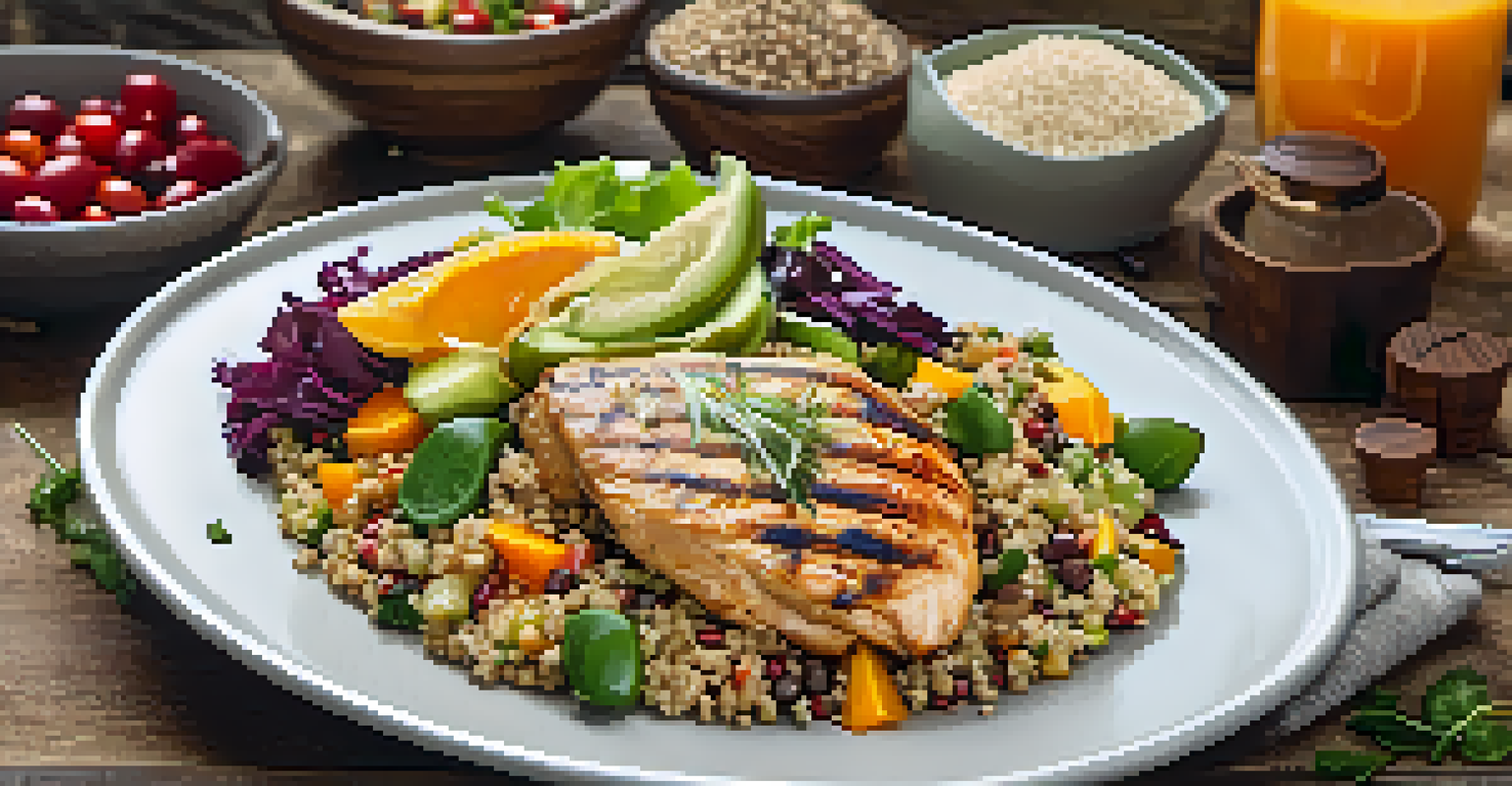Vitamins and Minerals Essential for Bodybuilder's Immunity

Understanding the Importance of Immunity for Bodybuilders
For bodybuilders, a strong immune system is as crucial as lifting weights. Intense training can stress the body, leaving it vulnerable to illness. This makes it essential to not only focus on muscle recovery but also on immune health.
The greatest wealth is health.
A robust immune system helps prevent infections and can reduce downtime, allowing bodybuilders to stick to their training schedules. Think of your immune system as a protective shield that keeps your body functioning optimally, even when you're pushing your limits.
By paying attention to the vitamins and minerals that support immunity, bodybuilders can maintain their health and performance. Let's dive into the key nutrients that play a vital role in fortifying immunity.
Vitamin C: Your Body's Defense Mechanism
Vitamin C is often celebrated for its immune-boosting properties, and for good reason. This powerful antioxidant helps protect cells from damage and supports various cellular functions of both the innate and adaptive immune system.

Incorporating foods rich in vitamin C, like oranges, strawberries, and bell peppers, can help bodybuilders fend off colds and infections. Consider it your immune system's best friend, working tirelessly to keep you healthy while you focus on your training.
Immunity is Crucial for Bodybuilders
A strong immune system is essential for bodybuilders to prevent illness and ensure consistent training.
Supplementing with vitamin C, especially during intense training phases, can provide an extra layer of protection. Just remember, balance is key; too much can lead to digestive issues, so stick to recommended doses.
Vitamin D: The Sunshine Vitamin for Immunity
Vitamin D is another essential nutrient for a strong immune system. Often called the 'sunshine vitamin' because it’s produced in response to sunlight, it plays a critical role in activating immune defenses.
Take care of your body. It's the only place you have to live.
Many bodybuilders may find it challenging to get enough vitamin D, especially if they train indoors. Foods like fatty fish, fortified dairy products, and egg yolks can help bridge the gap, but supplements are also a viable option during colder months.
Adequate vitamin D levels not only support immunity but also enhance muscle function and strength, making it a dual-purpose nutrient for bodybuilders. So, don't forget to soak up some sun or consider a supplement if you're running low!
Zinc: The Immune Booster You Can't Ignore
Zinc is a trace mineral that plays a pivotal role in immune function. It helps in the development and activation of T-lymphocytes, which are crucial for your immune response. Without enough zinc, your body may struggle to fend off infections.
For bodybuilders, maintaining optimal zinc levels can also support muscle repair and growth, making it a two-for-one deal. Foods high in zinc include lean meats, shellfish, legumes, and seeds – all great additions to a bodybuilder's diet.
Key Nutrients Boost Immune Health
Vitamins C, D, zinc, magnesium, and omega-3s play vital roles in supporting immune function and overall health.
Supplementing with zinc can be beneficial, especially during periods of heavy training or stress. However, it's important to not overdo it, as excessive zinc can lead to negative health effects.
Magnesium: A Mineral for Recovery and Immunity
Magnesium is crucial not just for muscle recovery but also for immune health. This mineral aids in over 300 biochemical reactions in the body, including those that help regulate the immune system.
Bodybuilders often lose magnesium through sweat during intense workouts, making it essential to replenish these levels. Foods like spinach, nuts, and whole grains are excellent sources of magnesium that can easily be included in daily meals.
Furthermore, adequate magnesium levels can help reduce inflammation, a common issue for those who train hard. This means that by ensuring sufficient magnesium intake, you can support both your immune function and overall recovery.
Vitamin A: A Key Player in Immune Function
Vitamin A is essential for maintaining the health of your skin and mucosal cells, which act as barriers against pathogens. This nutrient is critical for a well-functioning immune system, as it helps produce white blood cells that fight infections.
Foods rich in vitamin A include carrots, sweet potatoes, and dark leafy greens. These foods not only support your immune health but also provide other nutrients that can enhance your overall well-being.
Balance Your Diet for Best Results
A well-rounded diet with a variety of foods enhances immune response and provides essential nutrients.
For bodybuilders, ensuring you have enough vitamin A in your diet can mean the difference between a robust immune response and becoming susceptible to illnesses. So, don't overlook this nutrient as you plan your meals.
Omega-3 Fatty Acids: Reducing Inflammation for Better Immunity
Omega-3 fatty acids are well-known for their anti-inflammatory properties, making them an invaluable ally for bodybuilders. By reducing inflammation, omega-3s can help improve recovery times and support overall immune health.
Fatty fish like salmon, walnuts, and flaxseeds are excellent sources of omega-3s. Including these in your diet can not only enhance your immune response but also promote heart and joint health.

Incorporating omega-3 supplements can also be beneficial, especially for those who may not consume enough fish. Just be sure to choose a high-quality supplement to reap the maximum benefits.
Balancing Nutrients for Optimal Immune Health
While focusing on specific vitamins and minerals is essential, balance is crucial for optimal immune health. A well-rounded diet that includes a variety of nutrients will provide a synergistic effect, enhancing your immune function.
Consider incorporating a colorful array of fruits, vegetables, whole grains, and lean proteins into your meals. This not only ensures you get a wide range of nutrients but also keeps your meals exciting and diverse.
Lastly, while supplementation can help, it should not replace a healthy diet. Strive to get most of your vitamins and minerals from whole foods, and consult with a healthcare professional before starting any new supplement regimen.